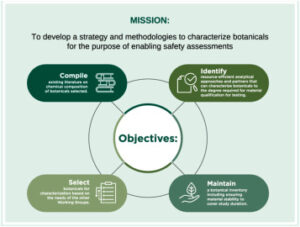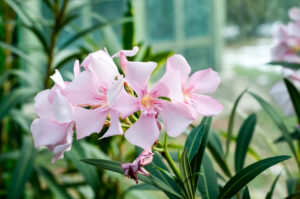A public-private partnership to improve botanical safety
BOTANICAL SAFETY CONSORTIUM
The Botanical Safety Consortium (BSC) was officially convened in November 2019, as the result of a Memorandum of Understanding between the US Food and Drug Administration (FDA), the National Institutes of Health’s National Institute of Environmental Health Sciences (NIEHS), and the non-profit Health and Environmental Sciences Institute (HESI).
Our current charge is to evaluate the suitability of assays for botanicals as complex mixtures.
The BOTANICAL SAFETY CONSORTIUM will provide a sound scientific basis for integrating existing botanical safety & toxicity information with the latest toxicological tools.
This multi-partite, multi-stakeholder international effort will bring together key scientific experts to enhance the botanical safety toolkit and bring clarity to botanical dietary ingredient assessments.
New publication: Advancing botanical safety
Advancing botanical safety: A strategy for selecting, sourcing, and characterizing botanicals for developing toxicological tools. Waidyanatha et al., February 2024. Food and Chemical Toxicology. https://doi.org/10.1016/j.fct.2024.114537 Increases…
Read MoreNew publication in Food and Chemical Toxicology
Neuroactivity screening of botanical extracts using microelectrode array (MEA) recordings Regina G.D.M. van Kleef, Michelle R. Embry, Constance A. Mitchell, Remco H.S. Westerink. Food and…
Read MoreNew publication in Regulatory Toxicology and Pharmacology
Improving the rigor and utility of botanical toxicity studies: Recommended resources Deval Patel, Barbara C. Sorkin, Constance A. Mitchell, Michelle R. Embry, Sharline Rina-Kong, Rebecca…
Read MoreHESI is a non-profit, 501c3 charitable organization that convenes leading scientists from the public and private sector to identify emerging health challenges and solutions, translates science from research to application, and enhances the protection of human and the environment health worldwide.
For more information, please contact: botanicalsafety@hesiglobal.org.



